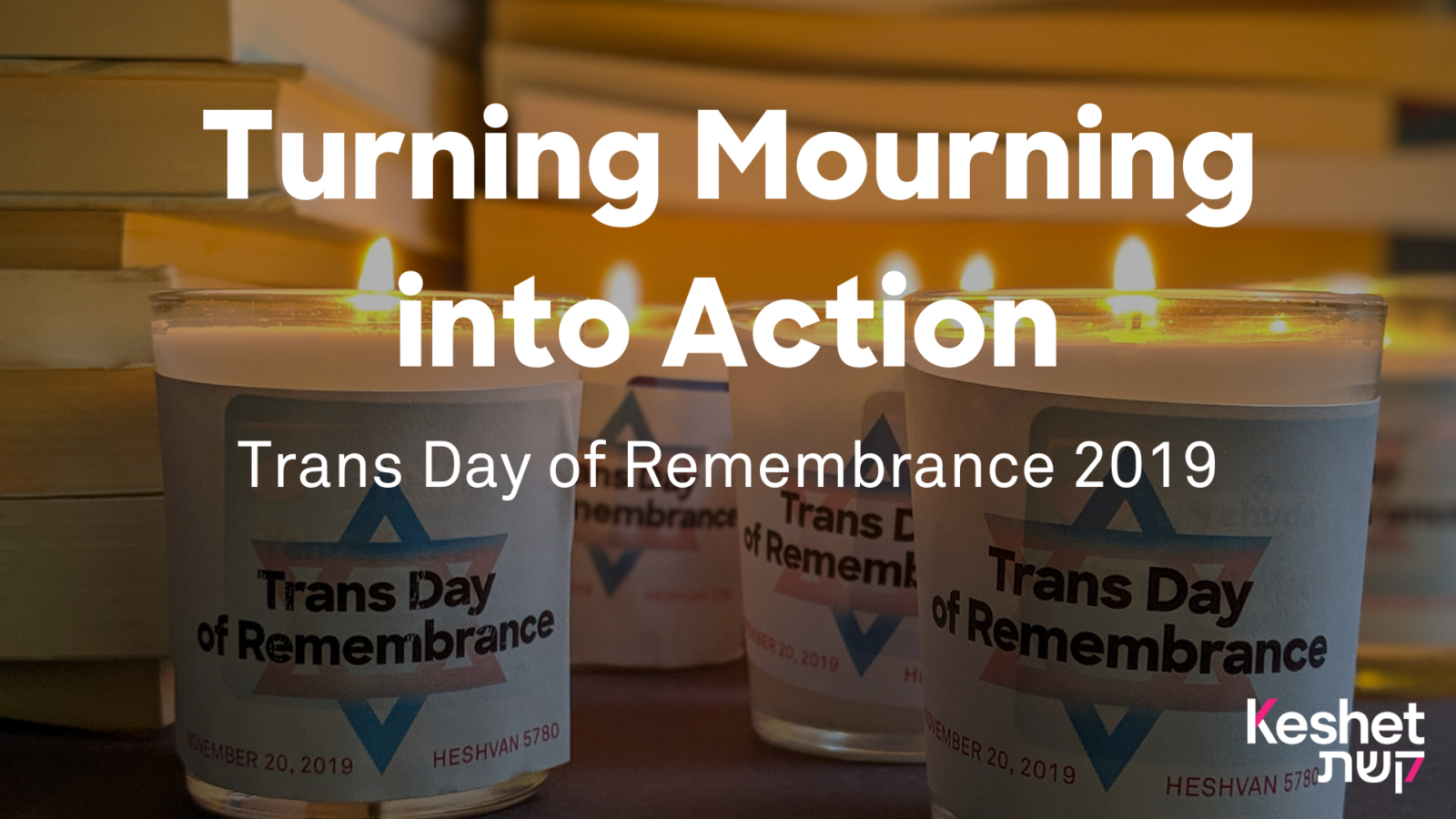Last year in honor of Transgender Day of Remembrance (TDOR), we wrote about mourning those we’ve collectively lost to anti-transgender violence. This year, we again mourn. At least 22 more transgender or gender non-conforming people have been killed and the overwhelming majority of those reported killed are Black transgender women. We say “at least” because all too often these deaths are unreported or misreported.
However, we must do more than just mourn and remember. We must do more than wait for each November 20th to acknowledge the lives of transgender people – particularly Black transgender women – after their lives have been cut short by hatred and violence. In the Jewish tradition, remembering is a call to action. We recall the pain of the past, lean into it, and commit to make things better for the future. But how do we do that? How do we see what we don’t recognize? How do we understand lives that are seemingly so different than our own?
It requires us to show up, be present, and lessen the suffering. In the words of Bryan Stevenson, we must get proximate to suffering and understand the nuanced experiences of those who suffer from and experience inequality. Stevenson believes that if you are willing to get closer to people who are suffering, you will find the power to change the world. But in order to get proximate, in order to show up, we must see who is suffering.
A theme of this week’s parashah, Vayera, concerns seeing. The reading begins with Abraham seeing G-d and the three angels who deliver news of Sarah bearing a son. (“Looking up, he saw three men standing near him.” Gen. 18:1-2). Later in the reading, Hagar’s eyes are opened by G-d in order to see the life-saving source of water. (“Then God opened her eyes and she saw a well of water.” Gen. 21.19). We also read the Akedah – the binding of Isaac – when Abraham sees the ram caught in the thicket that he will sacrifice, rather than his son. (“When Abraham looked up, his eyes fell upon a ram, caught in the thicket by its horns.” (Gen. 22: 13). Each instance of seeing required looking up, adjusting their vision in order to see what was before them.
Seeing can be difficult. It can be painful. Nearly everyday, if we raise our eyes, we can see the suffering of those around us – and, unfortunately, there is no shortage. And when we do see the suffering, we want to lessen it. We want to help, we want to make it better, and be kind. But we are often unsure how. Abraham models these acts of kindness in Vayera when he welcomes three men into his tent. (Gen. 18:2-8).
These men were strangers, not his people, but “others.” Despite being unfamiliar, he invited them into his home. In reality, these were angels in human form who needed nothing. His act of inviting guests into his tent was not a reaction to seeing people without a place to stay or food to eat, but because of the intrinsic desire to demonstrate compassion, as G-d had modeled for Abraham. His guests were only sent so that Abraham could manifest the hospitality shown to him by G-d.
G-d created and maintains this world with kindness, but we have allowed the world to be unkind. We have seen with our own eyes the suffering in our communities. We therefore must act and rebuild. We must honor those we have lost. We must redouble our efforts to change the environment that allowed these tragedies to occur. We must commit to getting proximate, to seeing the humanity of those who are unfamiliar to us. And we must pledge to center and elevate the transgender voices of the living, particularly the most vulnerable.
Our rabbis teach that each person is a microcosm of the world and to save even one person is to save the world. Although there is just one earth, the ways in which we experience and live on it are often so unrecognizably different that it really isn’t the same world at all. On this Transgender Day of Remembrance, let us light a yartzeit candle not only to remember those we have lost, but to guide us in bringing more kindness, more compassion, and more justice in this world. Kein yehi ratzon.

